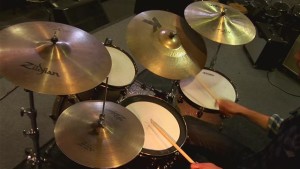I recently waxed ecstatic about California, the state I live in. I do indeed love living here, but I never claimed that it was perfect.
For example, a recent report shows that when it comes to Latinos, my state has some issues. And those issues are reciprocal, in that as Latinos go, so goes California.
You see, the study has found that among all racial and ethnic groups in California, Hispanics have the lowest well-being score. What, exactly, does that mean?
Well, rather than just look at a group’s median income or rate of cancer or percentage of sunny dispositions or collective weight or any of the other statistics that offer us interesting but isolated insights into a demographic’s existence, these researchers created an overall well-being score.
The number is based on a group’s overall health, educational level, earnings, and other factors, all put together. Think of it as a GPA rather than an individual grade.
Well, measured on a 10-point scale, Latinos had a well-being score of 4.09. That’s bad.

I mean, would you want to date someone who was barely a 4 out of 10? Now imagine an entire group struggling under that number.
For the sake of comparison, Asian Americans had the highest score at 7.39. Whites and blacks were in between but noticeably better than Hispanics.
Digging a little deeper, the researchers found that native-born Latinos fared better than immigrants did. But by any measure, California’s Hispanics are far from thriving.
That’s terrible news, of course. But it goes beyond dark days just for la raza.
Hispanics are poised to become the state’s largest ethnic group, and more than half of California’s children are Latino. It doesn’t take much of an imagination to see that the study’s results could be ominous for the state’s future. With such a large percentage of the population struggling, the whole state will be dragged down.
The study’s authors conclude that California needs to improve the well-being of Latinos if the state hopes to thrive.
Well… yeah.
But there is some good news. While Latinos have the lowest well-being score, they’ve made great strides since 2000, and they’re moving up more quickly than any other group.
So at least we have forward momentum on our side. With hope, that will be enough to keep Cali golden.





